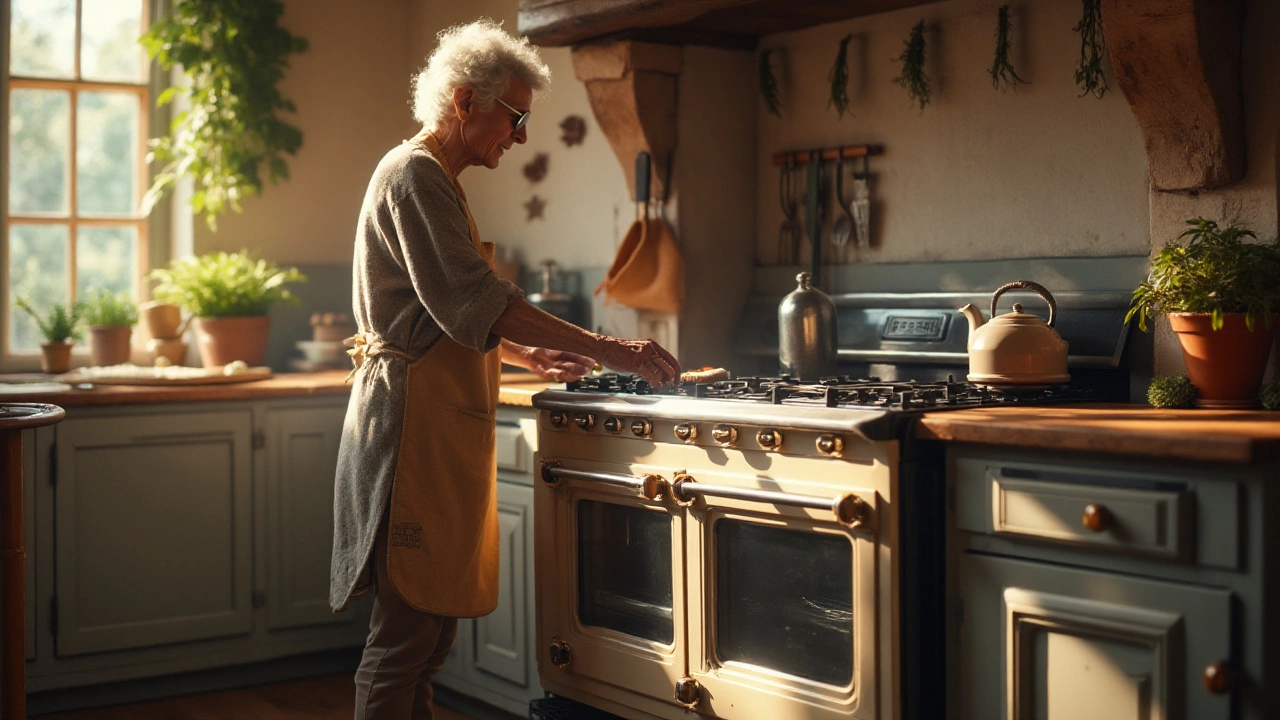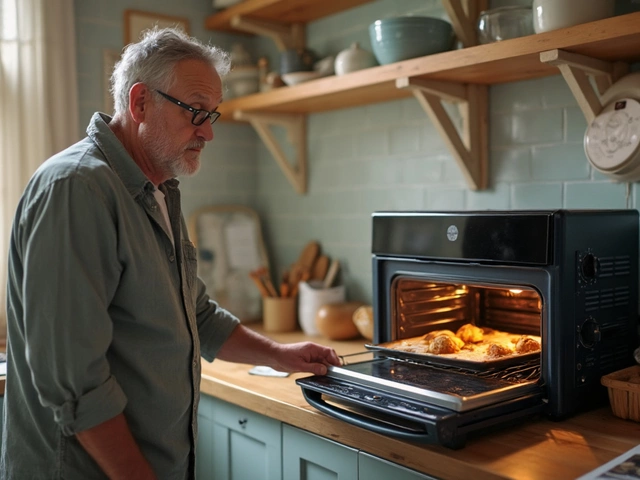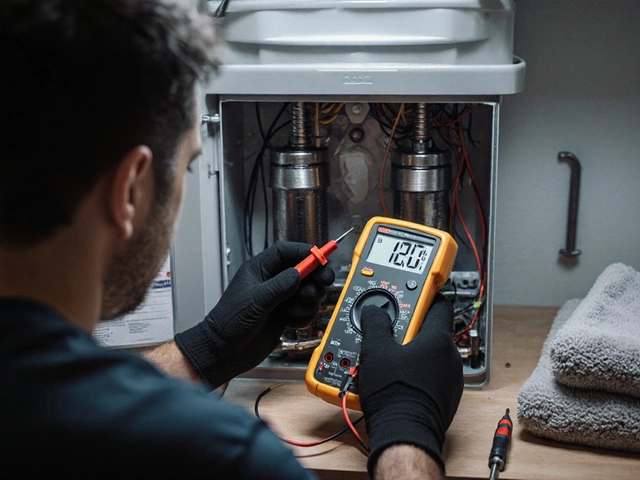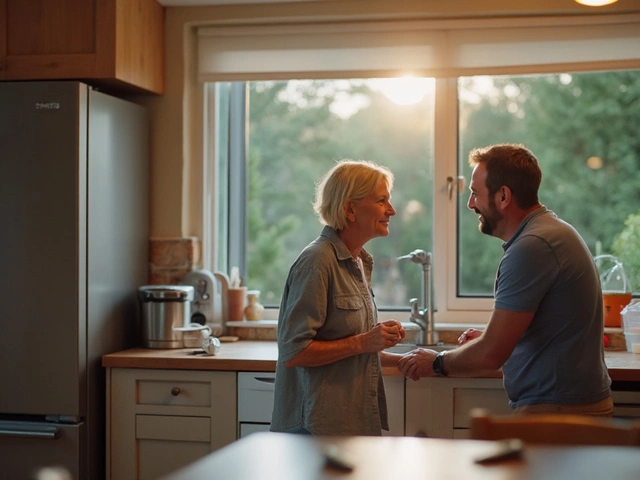In a bustling kitchen, the oven stands as a cornerstone of culinary creativity. Like any trusted companion, though, it has a lifespan that deserves attention. The average oven can serve you well for about 10 to 15 years, but this depends on several factors that we'll explore here.
From how often it roasts your favorite dishes to the way it's maintained, numerous elements influence its longevity. Keeping it in prime condition isn’t as daunting as it may seem. A bit of know-how and a smidgen of care can make all the difference.
Whether you have nostalgic memories tied to delicious aromas wafting from its door or a pragmatic approach to avoiding unexpected breakdowns, ensuring your oven’s longevity involves simple practices. Let’s delve into what you can do to keep your oven ticking well beyond its expected years.
- Understanding Oven Lifespan
- Factors Affecting Oven Life
- Maintenance Practices
- Signs Your Oven Needs Replacement
Understanding Oven Lifespan
Ovens have been a kitchen staple for generations, evolving from wood-fired ancestors to the precise, digital marvels of today. The lifespan of these indispensable tools, much like vintage wines, often depends on several variables but we can generally expect them to last between 10 to 15 years. The journey an oven takes over the course of its life is captivating, eloquently shaped by hands-on usage and conscious care. But what really influences this timeline? At the core of this inquiry is the interplay between material quality, usage frequency, and maintenance.
To delve deeper, consider the components. An oven is generally composed of metal and electronic parts, each susceptible to wear in different ways. The heating elements, door hinges, and control panels contribute substantially to operational longevity. Regular cleaning plays a pivotal role, removing grease and food debris that might otherwise damage these parts over time. Interestingly, intense cleaning methods, such as high-temperature self-cleaning cycles, can ironically shorten the life of certain ovens by straining their components. Learning the signs of wear can help ensure an oven runs optimally.
Common Factors Affecting Lifespan
Would you believe that energy source can greatly impact an oven’s life? Electric ovens, with standardized parts, sometimes outlast more complex gas ovens, which contain intricate systems of igniters and gas lines. The environment too plays its part: high humidity areas can see ovens corroding quicker than their counterparts in arid locales. Manufacturers provide various warranties reflecting an expected lifespan, hinting at longevity based on ideal conditions. Yet, ovens aren't confined to statistics alone; a survey found that many households use their oven threeto five times a week, often aligning with the latter edge of that lifespan prediction.Industry experts reinforce this. According to a home appliance study by J.D. Power, "The average age of an oven before it is replaced is twelve years, owing largely to optimized maintenance." Another industry figure advises, "Much like a piano, a well-cared-for oven doesn't show its age as quickly." We see then how responsibility rests on the owner's shoulders to nurture longevity, primarily through mindful upkeep.
Knowing When to Say Goodbye
Even with meticulous care, an oven will eventually croak, and identifying the signs of trouble can preempt a complete malfunction. A failing heating element, for instance, can cause uneven cooking or extended baking times. Doors that don’t close tightly allow heat escape, leading not only to undercooked meals but an overworked appliance. Don’t be dismayed if your oven needs replacing after years of faithful service. After all, embracing new technology can provide enhanced features, superior efficiency, and a more enjoyable cooking experience.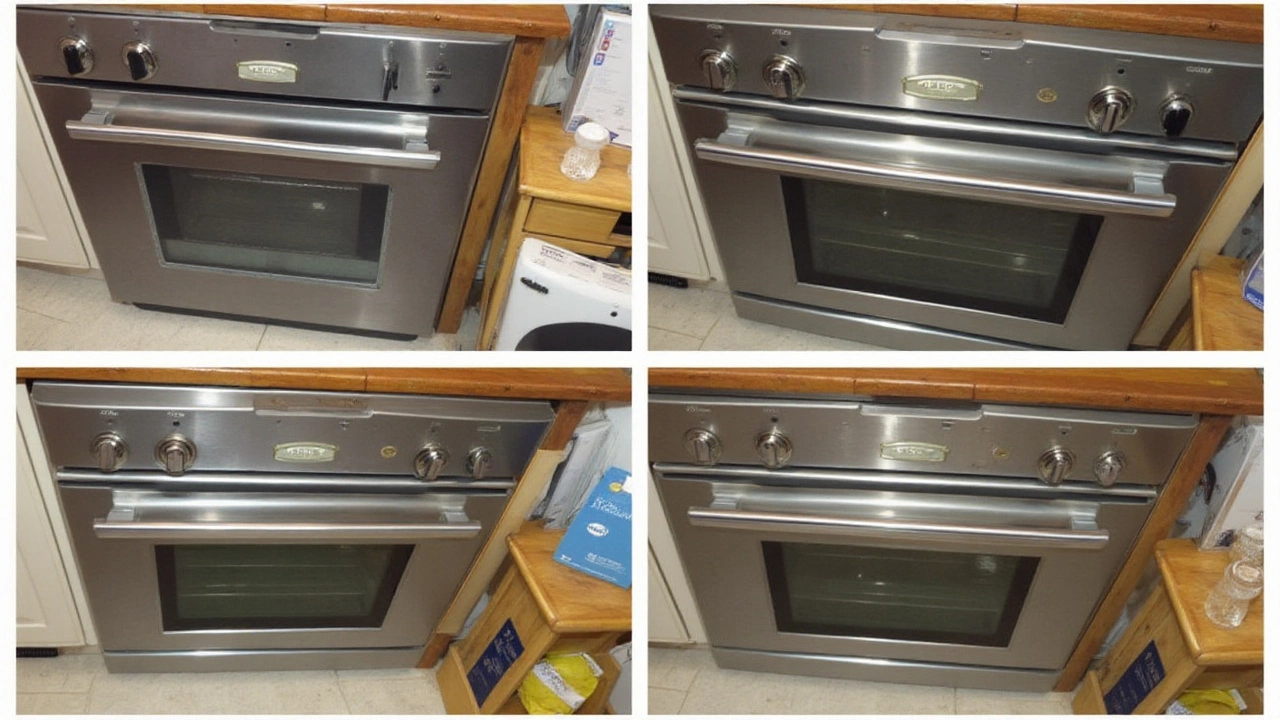
Factors Affecting Oven Life
When it comes to the longevity of your oven, several factors come into play, each significantly impacting how long this kitchen staple will serve you. Primarily, it's the frequency of use that tops the list. An oven used daily for heavy cooking tasks inevitably faces more wear and tear compared to one that's only fired up on special occasions. More usage means more heating cycles, which translates to more stress on internal components, leading them to potentially wear out sooner. However, moderation isn’t always key; instead, knowing your oven's limits helps maintain its health over time.
Material quality also plays a crucial role in an oven's lifespan. Ovens crafted from robust materials are bound to last longer. The inner workings, such as the heating elements or the thermostat, made from superior materials, will withstand extensive use better than those of lesser quality. It's the age-old adage: you get what you pay for. Investment in a quality appliance often translates to fewer headaches down the line, yet it’s essential to balance cost with expected usage; after all, a chef's kitchen will have different needs than a college dorm suite.
Maintenance, or lack thereof, profoundly influences how many years your oven will grace your home. Regular cleaning not only keeps it hygienic but also ensures that no food debris or residue builds up over time, which can cause issues with heating efficiency. It’s good practice to inspect seals around the oven door; these should be airtight to maintain desired temperature levels within. A small task like this can make your oven more energy-efficient and prolong its life significantly.
Environmental factors such as kitchen humidity, temperature, and the general condition of the area where your oven resides can also play a subtle yet important role. Dampness from moisture-heavy kitchens can corrode oven components over time, while a cramped space may not allow the ventilation necessary to keep an oven cool and functioning optimally. Adapting your kitchen setup to accommodate these needs will help shield your device from needless strain.
Oven lifespan can also be negatively affected by human error or mishaps. This includes using the oven inappropriately, such as for storage of items not meant for extreme temperatures, or accidentally using the self-cleaning function too frequently. Missteps in operation or maintenance can unwittingly cause components to fail prematurely. In fact, a well-known oven technician once stated, "Treat your oven like a valued piece of equipment, not just another kitchen tool, and it will repay you with years of faithful service." Such practices imbue an oven with resilience amidst life’s potential rocky paths.
In a study conducted on kitchen appliances, data suggested that the failure rate for ovens after ten years is remarkably high when usage and maintenance factors aren't carefully considered. A small table showcasing this data could look something like this:
| Years in Use | Average Failure Rate |
|---|---|
| 1-5 | 5% |
| 6-10 | 20% |
| 11-15 | 50% |
Ultimately, understanding these various aspects can aid in extending your oven's functional life, ensuring it remains an integral part of your kitchen without frequent interruptions. A bit of informed attention goes a long way in keeping this beloved appliance operational for years to come.
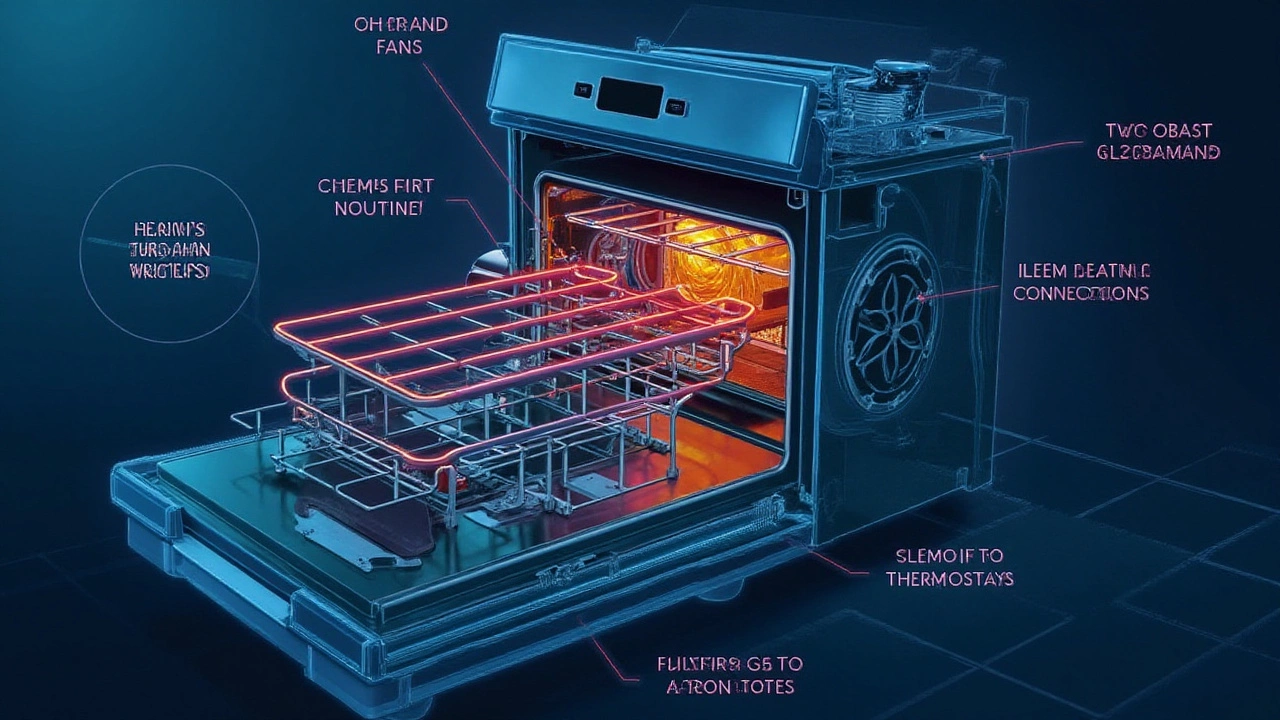
Maintenance Practices
Keeping an oven in top-notch shape requires a touch of diligence and smart maintenance practices. An oven, like any other major appliance, thrives on regular care. One of the first steps in extending the life of an oven is to ensure it's cleaned regularly. A buildup of grease not only affects the oven’s efficiency but also shortens its lifespan. Avoid using heavy chemicals; opt instead for a mixture of baking soda and water. This method is not only eco-friendly but also remarkably effective.
Regular inspection is another critical aspect of maintenance. Every few months, inspect the heating elements for signs of wear and tear. Burnt-out elements not only lead to uneven cooking; they stress the oven components. If there's a sudden change in how your oven cooks, it's a signal to check these elements. Mick DeWet, an appliance repair specialist, advises, "Routine checks can save you from surprise repairs." Keeping an eye on hinges and seals also helps maintain the oven's efficiency. Worn door seals lead to significant heat loss, increasing cooking time and potentially causing damage.
Timely repair of faulty components is a must. Many people delay repairs, hoping the problem fixes itself. This approach, however, could result in bigger issues down the line. Whether it’s a strange noise or the oven isn’t heating as it used to, addressing problems early can prevent costly repairs. It's worth mentioning that DIY repairs should be approached with caution. While changing a light bulb is straightforward, altering wiring or replacing elements is best left to professionals for your safety and the appliance's well-being.
Having a maintenance schedule works wonders. Marking quarterly checks on your calendar ensures that you don’t miss out on crucial upkeep steps. Some folks find it handy to pair these checks with seasonal activities. Spring cleaning, for example, is an excellent time to deep clean your oven. Investing in a professional maintenance check once a year can also be worthwhile. Experts can detect potential issues that might escape an untrained eye, ensuring the oven remains in top condition.
Perhaps one of the most overlooked practices is paying attention to usage. Simple habits, like letting an oven preheat fully or avoiding slamming the door, add years to its life. Overloading the oven is also a common mistake. When crowded, it affects the cooking results and strains the oven, leading to premature wear. Being mindful during usage reduces the appliance's workload, allowing it to perform efficiently over the years.
“Prevention is better than cure,” echoes many appliance care experts. Being proactive with maintenance is key.

Signs Your Oven Needs Replacement
Your oven has been a stalwart ally in your kitchen adventures, but there comes a time when it may show signs that it needs to step down. Recognizing these signs can save you from countless culinary mishaps and enhance your cooking experience with the latest technology. Let’s take a deeper look at when you might want to bid farewell to your trusty old oven.
Firstly, if you notice your favorites coming out undercooked or burnt on a regular basis, it might not be your recipe that's at fault; it could be your oven's failing temperature accuracy. An oven that struggles to maintain consistent temperatures or has hot spots is no longer reliable. You might spend endless hours recalibrating it, but age takes a toll, and it may be more time and cost-effective to consider a new model.
Another clear indication is when repairs become frequent and costly. If your oven repair costs are adding up and creeping closer to the price of a new one, it's a strong signal to start shopping around. Many experts agree with the “50% rule”: if the repair costs exceed 50% of the price of a new oven, it’s more sensible to replace it.
Martha Stewart, renowned lifestyle expert, once noted, "An oven that constantly begs for repairs isn't just an inconvenience, it's a risk to your cherished meals."
Efficiency is also a telling factor. Older ovens often lack the energy-efficient technologies present in new models, leading to heftier electricity bills. If you notice a spike in energy consumption, after ruling out other household causes, it might be your aging oven demanding more power than necessary. Newer models offer more efficient cooking options, saving both time and money in the long run.
| Average Repair Costs | Average Lifespan |
|---|---|
| $200 - $500 | 10 - 15 years |
Unusual noises, while amusing to some, are not music to a cook's ears when emanating from their oven. Persistent rattling, buzzing, or squeaking are signals your oven’s mechanical parts are wearing down. These sounds can hint at more severe issues like motor or fan problems, which aren’t worth band-aid repairs as they can escalate quickly.
Finally, outdated features can be a gentle nudge towards replacement. If you find yourself envious of a neighbor's convection or smart oven’s capabilities, it’s a good time to consider an upgrade. Today's ovens aren't just inanimate appliances; they're smart devices that can be controlled with your phone, offering precision and convenience unimaginable in the past.

